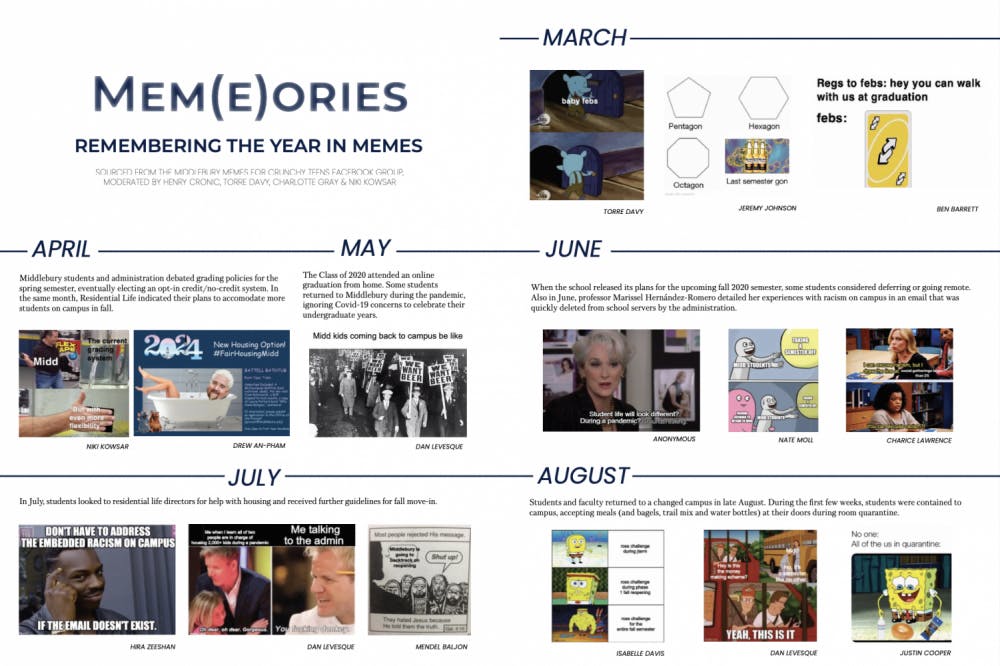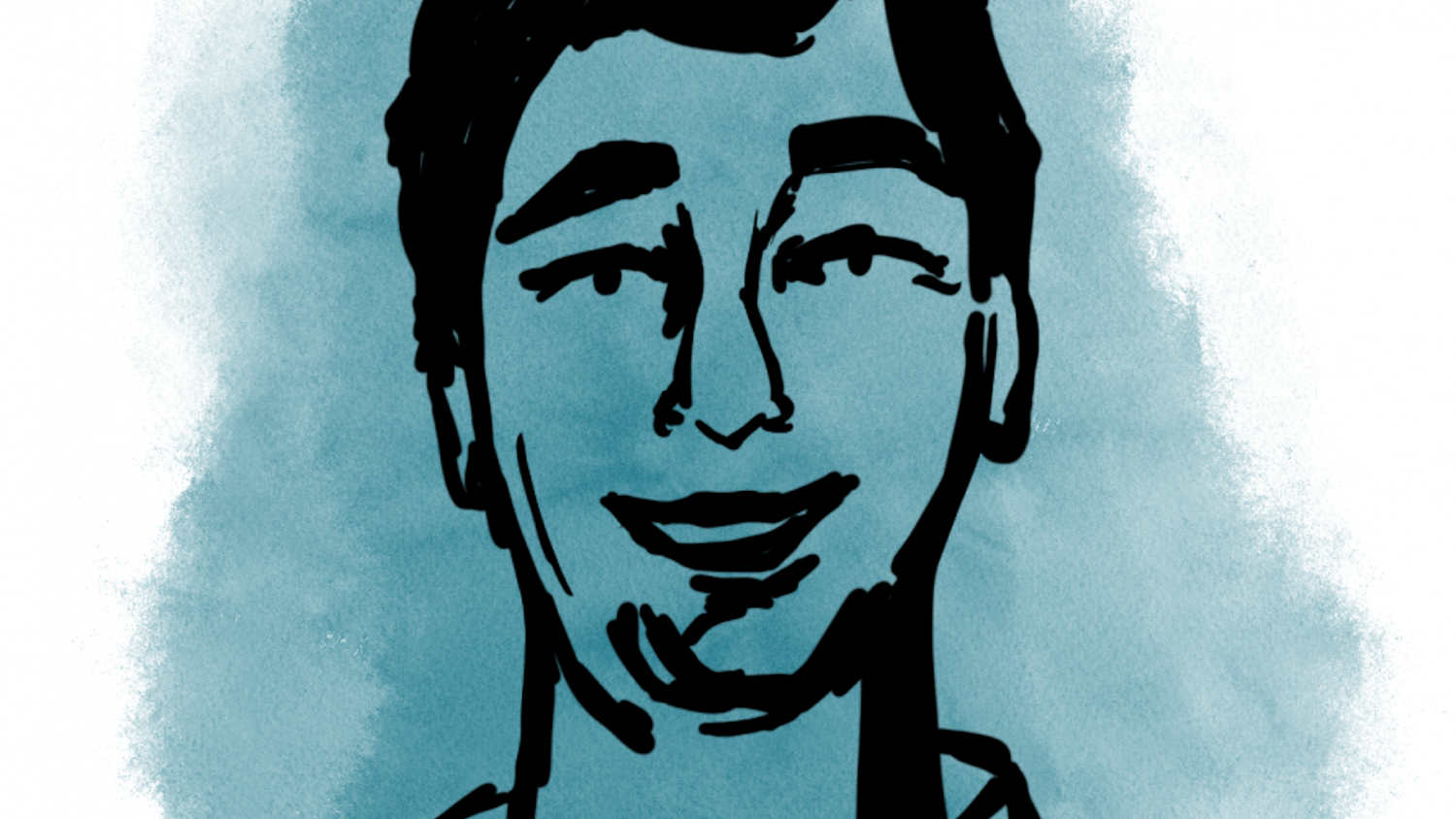
Besides Panopto lectures and PolicyPath surveys, one of the most drastic changes to Middlebury College life in the pandemic has been the digitization of Middlebury’s social scene and community spaces. For students, many of these online spaces are familiar: the all-powerful meme page, topical Twitter threads and specialty Instagram accounts. Now, they also fill the interpersonal void created by remote schooling. Important and imperfect, online communities are now sometimes all we have — and just like in-person communities, they require thoughtful reconsideration and momentum toward inclusivity.
Created in the shadow of Charles Murray’s 2017 visit, the Facebook meme page “Middlebury Memes for Crunchy Teens” now boasts over 3500 members — larger than Middlebury’s own enrollment. The page has been widely known since its conception, even receiving some institutional recognition through a partnership with Special Collections in 2019 to archive relevant posts for future generations.
So it only made sense that the page took on a new role when students were sent home in March 2020: the central chatroom for a student population who had no idea what was going on.
Although originally founded to be a space for satirical commentary on serious issues, the page’s new role in the pandemic was still unfamiliar territory for its hard- working moderators. During the Black Lives Matter protests of the summer, moderators suspended its rule that “posts must be memes’’ to broaden the mandate of the group to serve as “a forum for students and alumni” — a “temporary” change that remains to this day.
For page administrator Torre Davy ’21, such a shift in mission has come with a learning curve. When posts first started to get serious in April and May, Davy worried that there was no way to appease every group member. But as more people got used to the new rules of the page, tensions eased. While the page strayed from its formula, it did start to resemble a different, familiar Middlebury public forum.
“It kind of turned into the online Proctor board,” he mused. “Some people did post their crush lists there.”
If the meme page is the Proctor board, then Middlebury Twitter has taken the place of the lively din of a noon Atwater lunch: camaraderie, humor and the occasional serious discussion taking place among a broad, relatively unconnected portion of the Middlebury community.
Keith Chatinover ’22.5 has appreciated the candor that the platform lends itself to. “[Midd Twitter] ended up really helping to remind me that I wasn’t the only one struggling with mental health and class work,” he said.
Unlike the meme page, where students continue to post
chiefly about student issues, the public nature of Twitter and the knowledge that professors, staff and townspeople can read the tweets results in a different rhetoric.
“I think it’s cool having this informal platform to interact with professors, including professors I’ve never had classes with,” Taite Shomo ’20.5 said, also acknowledging that the publicless necessitates some self-censorship.
Michael Koutelos ’21 was quick to identify the important role that the Midd Twitter played in one of the more disturbing moments of the fall semester, when Rodney Adams ’21 and Jameel Uddin ’22 were harassed by a racist student outside the Ross complex. That same night, they took to Twitter to recount the attack, garnering widespread support from students, alumni, faculty and the broader community.
There are, of course, other online Middlebury communities that have popped into relevance during the pandemic. Specialty Instagram accounts such as “Middlebury Missed Connections” “Midd Confessions” and social media pages for clubs and societies on campus have increased their presence in response to restrictions on in-person gatherings. Across the internet, Midd students gather in different spaces and ways not unlike they once did physically. But just as those in- person communities had their flaws, inequalities and exclusions, so too do our newly minted digital ones.
As our community becomes more nebulous, online spaces become unquestionably important hubs — but we can’t forget their nuances or limitations. These spaces are sometimes ignorantly student-centric, dismissing or disparaging the views and actions of faculty, staff and townspeople, and can also be exclusive even among students.
This is not to say that different sub-communities are not essential in providing safe spaces online. But our current online communities are closed ecosystems built imperfectly for certain types of community members. We must be intentional in our use of these spaces and cognizant of the ways they do — and don’t — serve the entire Middlebury community.
When the pandemic does — eventually, hopefully — end, much of our lives’ migration online will remain: some work will forever be remote; Zoom calls will stay a part of our lives. Reconsideration of the online places where we go to connect with others is necessary for a healthier Middlebury community.

Jake Gaughan
Jake Gaughan is an Editor at Large.
He previously served as an Opinion Editor and News Editor.
Comments



